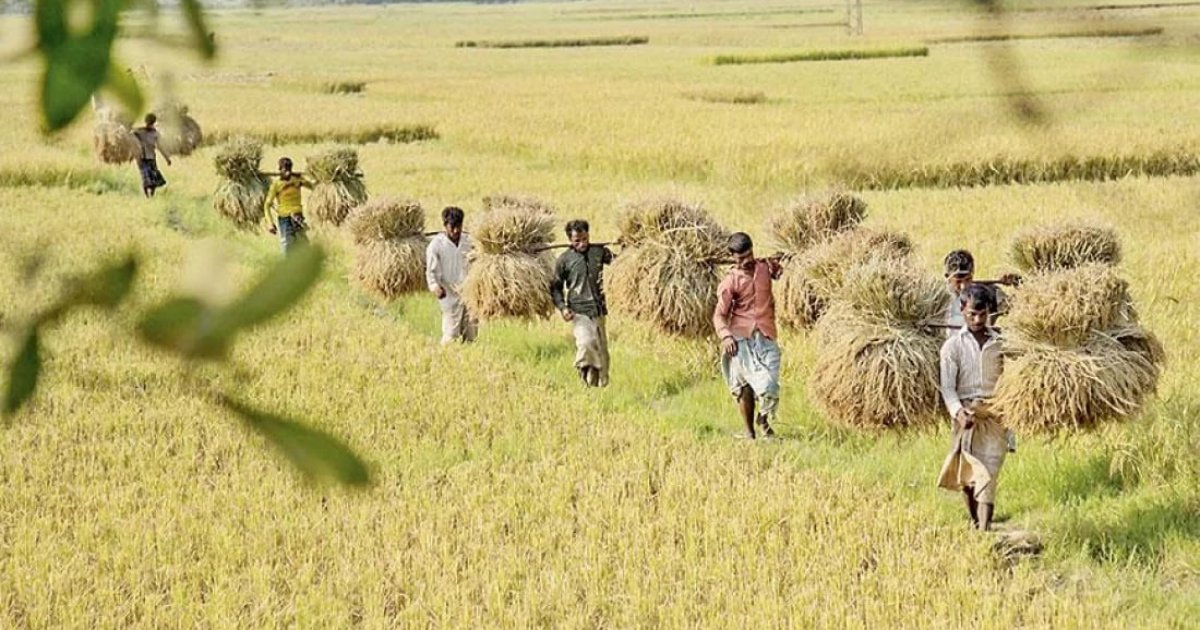Once a vibrant fixture of rural Bengali culture, the traditional “Nobanno Uthshob” the festival celebrating the first harvest, is quietly fading from many villages across Lalmonirhat, according to local residents.
With the end of the Bangla month of Hemonto and the touch of approaching winter, farmers across the district are busy harvesting Aman paddy.
Golden fields still stretch across the horizon, carrying the familiar scent of new grain, yet the festive celebration that once marked this season is rarely seen nowadays.
Villagers said that although the joy of harvesting remains, the communal spirit of sharing the first cooked rice from the new crop—a hallmark of the “Nobanno Uthshob”—has largely diminished.
“We heard from our parents how festive the day used to be. People would go to each other’s houses to eat the first rice. But now we hardly see such practices,”said Saiful Islam, an SSC student from Shialkhowa village in Kaliganj upazila.
Recalling the joy and celebrations of the past, 70-year-old farmer from Aditmari upazila, Shafique Mia said they were poorer 30 years ago, but the joy of the new harvest was greater.
“We used to make pitha, polao and share with neighbours after offering the first rice to the imams. Now income has increased, but happiness has decreased. The young generation doesn’t even know what ‘Nobanno’ really means,” he said.
Farmer Jomir Ali, drying paddy in the field, shared a similar memory. “We used to cook rice from the new crop and give the first plate to the imam of the mosque for blessings. We did doa and ate together. That tradition is almost gone now,” he said.
Saleha Begum, another elderly villager, said people once respected tradition and valued togetherness.
“We used to cook new rice, keep it at the entrance, and invite the moulvi for Milad. Now nobody does that. Times have changed, and so has our culture,” she said.
Badsha Golam Rabbani, a teacher at Duhuli SC High School, said the festival once created a joyful social atmosphere.
During their childhood, he said, they would go in groups to different houses and enjoy new rice dishes. “Today’s children know the festival only by name; they cannot feel its essence.”
Mozaker Noman, Agriculture Extension Officer of Kaliganj Upazila, said harvesting is already underway and some farmers still observe ‘Nabanna’ in a simpler form.
“Many farmers celebrate by making pitha, puli and payesh from the new rice,” he said.
Despite such efforts, villagers and cultural observers fear that one of Bengal’s oldest agrarian traditions is at risk of disappearing, unless initiatives are taken to revive collective celebrations of the harvest.



